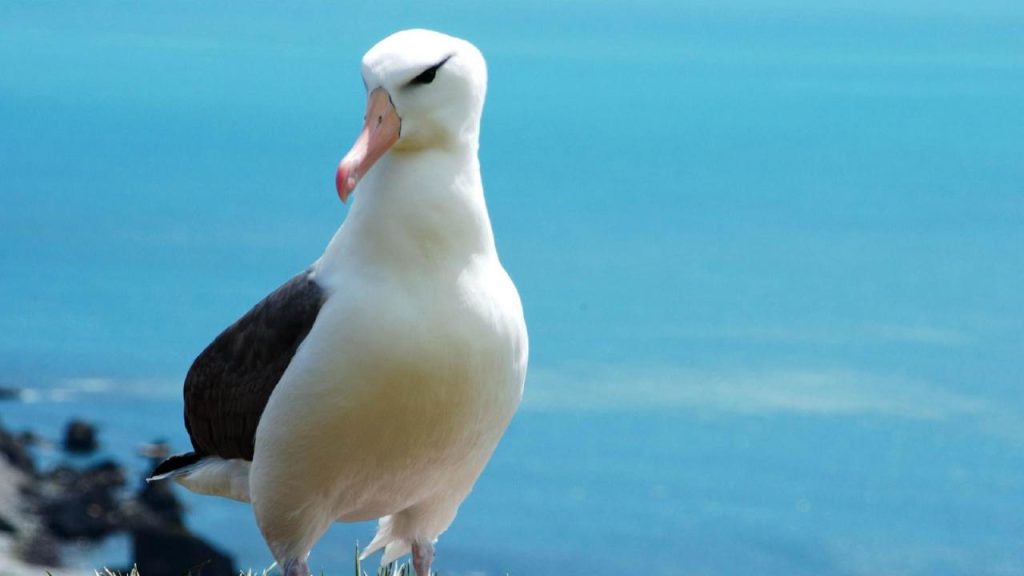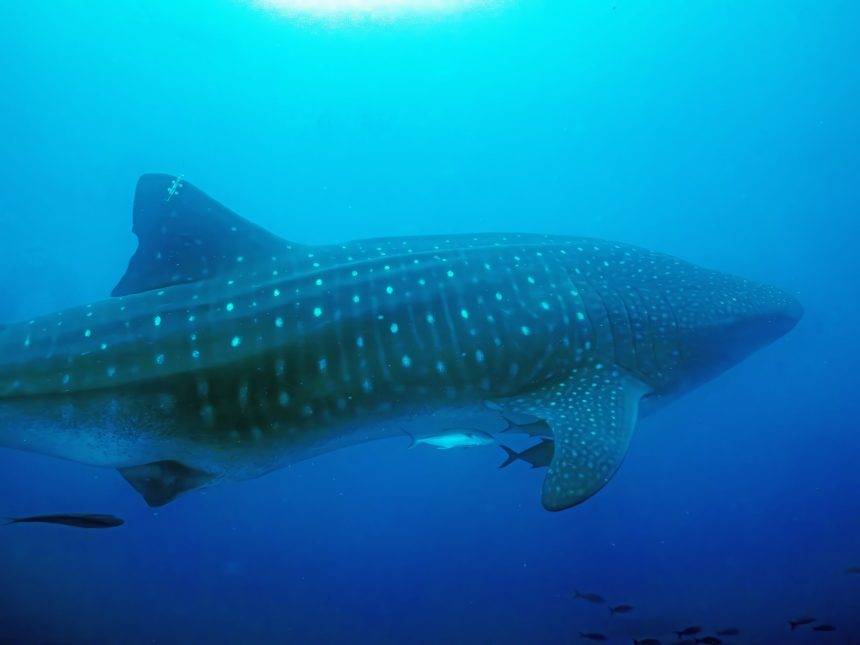No matter where you live, the health of our oceans affects you. From the air we breathe to the jobs we rely on, our lives are deeply connected to marine ecosystems.
With the support of G Adventures and thousands of travellers worldwide, Planeterra’s Ocean Health Fund has supported organizations working on species conservation, Ocean waste reduction, climate and biodiversity research, and the empowering of future ocean stewards.
Here are three of the projects that are currently in action.

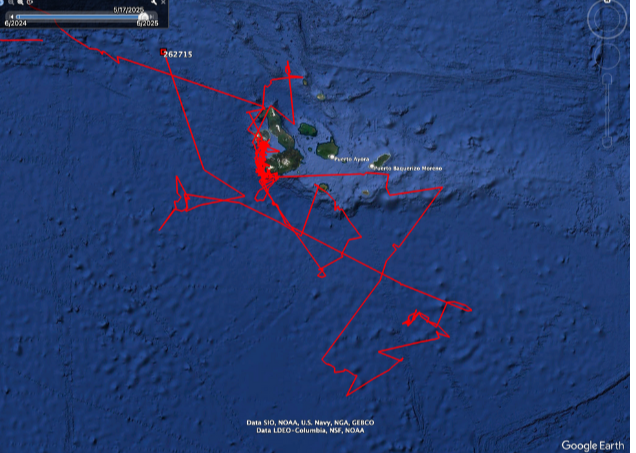
The Galapagos Whale Shark Project
Elise #262715 was tagged on June 21st at Darwin Arch by divers from the Galapagos Whale Shark Project. This adult female whale shark, measuring between 10 and 11 meters, was previously unknown to the Wildbook for Sharks, marking this her first recorded sighting in the Galapagos.
Elise’s remarkable journey, covering >18,000 kilometres (surface track) over the course of just under 11 months, illustrates the vast distances whale sharks are capable of travelling.
Her path initially took her north-westward, travelling a straight-line distance of 4,226 kilometres from where she was tagged at Darwin Island (Lat: 1.665178°, Lon: -91.987012°). This underscores the urgent need for the establishment of more marine protected areas and the enforcement of high seas policies to safeguard migratory species like whale sharks.
Currently, Elise has been observed off the west and south sides of the Galapagos Archipelago for the past 3 months, within an upwelling zone, suggesting potential foraging behavior. This new movement could reveal previously unknown habitat use in the Galapagos for whale sharks, providing vital insights into their behaviour in the region.
The Galapagos Whale Shark Project team, with the Galapagos National Park, will continue to track Elise and gather data to enhance understanding of whale shark habitat use and migration patterns. This research is critical for developing effective conservation strategies to protect these magnificent creatures throughout their life cycles.
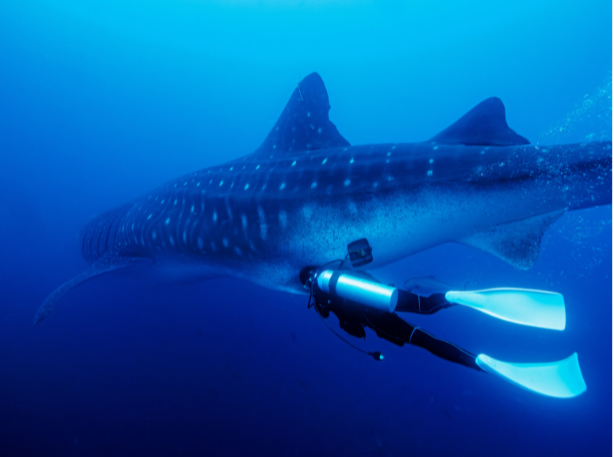
Ocean Conservancy’s Global Ghost Gear Initiative (GGGI)
One of the most harmful forms of marine debris is abandoned, lost, and discarded fishing gear—also known as ghost gear. The GGGI’s key impacts from the past year are:
- Removing Ghost Gear from Sensitive Marine Areas.
- Cross-Border Collaboration. The North American Net Collection Initiative , led by GGGI, collects old fishing nets in Mexico, the U.S., and Canada. So far, over 566,000 pounds of nets have been collected and mostly recycled into new products.
- Raising awareness among fishers and the public. GGGI provides hands-on training for fishers and runs public education campaigns. Media appearances like “Oceans Haunted By Ghost Gear” and “Ghost Gear is polluting the Chesapeake Bay and oceans around the world” have helped spread awareness to wider audiences.
- Advocating for a strong global plastics treaty.
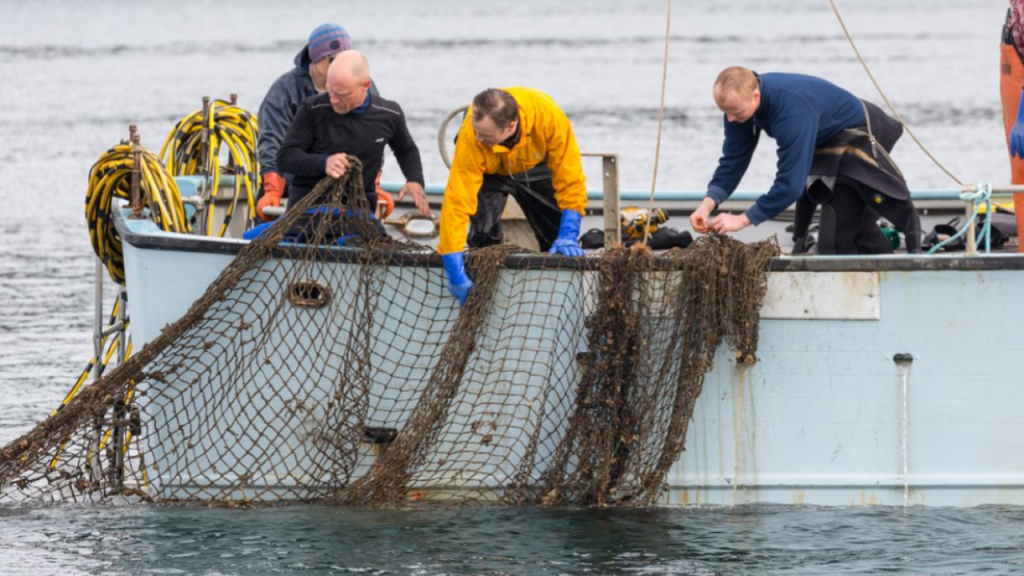
Another important part of this effort is the Joanna Toole Internship, which supports early-career women pursuing ocean conservation. Wilson Haims is the 2024 intern. She said, “I had the opportunity to work with the Marine Debris and Plastics Program at the Center for Coastal Studies in Provincetown, Massachusetts, collaborating with local fishermen to recover lost and abandoned fishing gear from Cape Cod Bay, assisting in leading a week-long fishing gear removal effort from the beaches on Cuttyhunk Island, and helping to coordinate a residency for students from Cornell University to engage with ghost gear and marine debris related issues. I also participated on research cruises with the Right Whale Research team, the Marine Animal Entanglement Response team and had the chance to observe a side-scan sonar cruise. At the Center for Coastal Studies I worked with artists, scientists, environmentalists, fishermen, volunteers, and a fishing net recycler. In my interactions with these individuals, I quickly learned that many of them claim more than just one of these titles.”
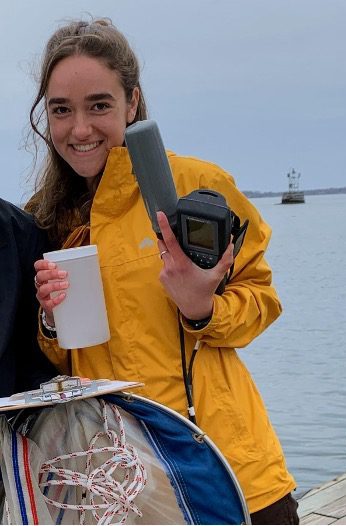
Albatross Task Force
For 20 years, The Royal Society for the Protection of Birds (RSPB) and BirdLife International’s Albatross Task Force combats incidental capture of marine wildlife in fisheries around the world. Scaling up these measures supports work in the High Seas tuna fisheries.
Fisheries are an essential source of income and food security for millions worldwide, yet incidental capture in fishing gear poses a critical threat to marine biodiversity and represents the greatest at-sea threat to many seabird populations. This impact is particularly severe for albatrosses and large petrels, whose migratory life cycles expose them to fishing fleets across multiple Exclusive Economic Zones and in the shared waters of the High Seas – the immense area of ocean outside national jurisdictions. Populations are declining rapidly as these slow-breeding birds are tragically caught on hooks during tuna fishing operations and too often these birds do not survive – an impact known as ‘seabird bycatch’.
At least 36,000 are killed annually (this is likely to be an underestimate due to poor data) – including high-risk species like the Atlantic Yellow-nosed albatross, Grey-headed albatross, Wandering albatross and White-chinned petrels.
At-sea trials and implementation of bycatch mitigation measures in trawl and longline fisheries have led to astounding bycatch reductions – such as 98% fewer birds killed in the Namibian longline fishery, and a 99% reduction in albatross bycatch in the South African trawl fleet.
